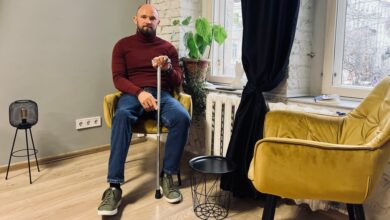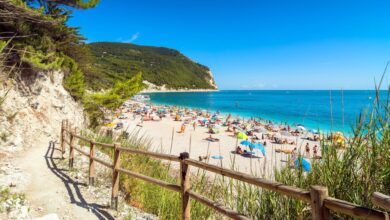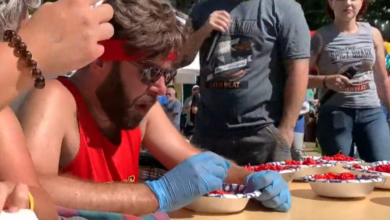Budgeting Pride events for safety across Canada

For the first time in its decade-long history, the Pride Festival in Timmins, Ont. Allocate money for safety this year.
Previously there were no online threats, no reason to believe that security was an issue. But hateful anti-LGBTQ2S+ rhetoric has surged on the internet, and the northern Ontario city of 40,000 was not spared.
“Usually it’s $17,000 for our entire Pride Week, because we’re small; we’re small,” says Julie Nobert-DeMarchi, who serves as treasurer of Fierte Timmins Pride. “But our security bill was $3,000. That’s very different from what we’re used to.”
Pride organizations across the country have faced increased threats, while anti-LGBTQ2S+ protesters have turned out en masse to oppose year-round community events such as kid-friendly drag performances. It has made safety a top priority for Pride organizers — in some cases for the very first time.
In Timmins, police were on hand for the parade, Nobert-DeMarchi said, but it was too pricey to also have officers at an inclusive drag brunch earlier in the day. Instead, the organization hired private security.
A protester came to the kid-friendly event with a loudspeaker, she said, and volunteers formed what she described as a “wall of love” to separate that person from those in attendance who were at the Timmins Museum. They also blasted music to drown out what the protester was saying.
“We had a security plan,” she said. “We didn’t know how many people would show up to protest or what could happen, so we had to prepare for the worst. That makes it really hard because you think of the worst case scenario.”
Nobert-DeMarchi, who also serves as chairman of the board of Fierte Canada Pride, the national association of Pride organizations, said that group conducted a survey of its members ahead of this year’s Pride season.
“All communities have seen an increase in online hate, an increase in experiencing hate speech and additional concerns about planning their events. What was very different was how everyone would approach it,” she said.
In some cases, outdoor events were moved indoors to keep them contained. In others, such as Timmins, the organizers paid for private security in addition to the police.
Further west, in Steinbach, Man., RCMP and local police will both be on hand for the parade.
“With the way things are going these days, you hear so much negativity and you hear so many cities and communities that have major safety issues,” said Chris Plett, president of Steinbach Pride. “We were very nervous about how that would turn out for us this year.”
Pride in Steinbach has always been a controversial subject. The city of 17,000 in an area often described as Manitoba’s Bible Belt held its first march in 2016, after much opposition. Elected officials — the mayor, the MLA, the MP — have yet to attend, Plett said.
While Steinbach hasn’t received the same influx of threats as other communities, Plett said Pride is always spoken of negatively online and has received some hateful messages. To prepare for all possibilities, Plett said organizers also implemented a “cadet” system to help police.
“Our main goal is to make sure that the people who attend don’t realize how much work has gone into safety and security. And they can just enjoy and enjoy the day,” Plett said.
It is a lot of work.
Pride Toronto, for example, said the security team was authorized to check everyone for guns with the help of a security staff if they entered designated festival grounds.
The organization’s police costs have more than doubled and the price of private security has increased by 25 percent. Insurance cost more than $300,000 this year, up from $67,000 in 2022.
That’s part of why the federal government provided emergency funding to Pride groups across the country to help with safety.
Fierte Canada Pride said $750,000 would be split between Montreal, Toronto and Vancouver, while $600,000 would go to smaller cities and communities.
But asking police officers to protect members of the LGBTQ2S+ community doesn’t go down well with everyone.
Gary Kinsman, a member of No Pride in Policing, argued that the police have not been on the side of the LGBTQ2S+ community for most of history.
“Over and over again, in terms of the right wing… in the end, the police defend them,” he said.
Sometimes, he said, the police were even the aggressors, such as during the Toronto bathhouse raids in 1981, which Kinsman was present with.
In those cases, LGBTQ2S+ people were responsible for their own defence.
“Obviously people understood that the police were not on our side,” he said of the events 40 years ago. “People organized the Gay Street Patrol, which was basically a regular patrol that took to the streets and engaged in any kind of queer bashing or violence against queer people that was happening.”
Today, the executive director of the LGBTQ2S+ group Equal Canada said different communities need to take different approaches to safety.
Helen Kennedy said that in some areas, particularly those with people at the crossroads of multiple marginalized groups, it is not appropriate to involve the police.
“We have been victimized by the police throughout history, and in some jurisdictions that is still pervasive and ongoing,” she said. “There’s a lot of work to be done.”
This report from The Canadian Press was first published on June 23, 2023.




